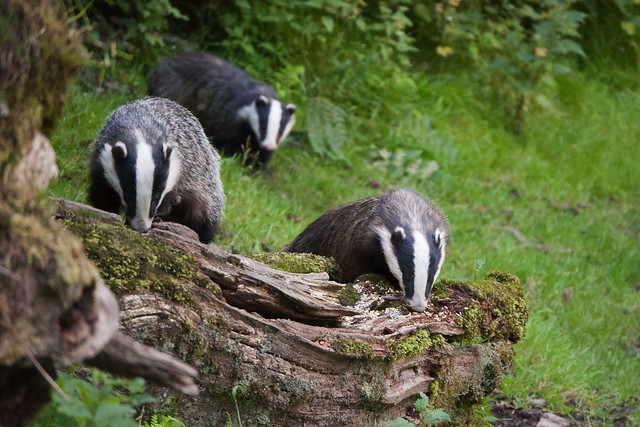Words for bird and (sky)lark in Celtic languages.
| Proto-Celtic | *ɸetnos = bird |
|---|---|
| Gaulish | Etnosus = bird(?) |
| Old Irish (Goídelc) | én [eːn] = bird |
| Irish (Gaeilge) | éan [eːnˠ] = bird, young bird, chick |
| Scottish Gaelic (Gàidhlig) | eun [ian] = bird, fowl, chicken |
| Manx (Gaelg) | eean [jiːən] = chick, fowl, young (of birds); juvenile, cheeky child, brat |
| Proto-Brythonic | edn = bird |
| Old Welsh | atar = birds |
| Middle Welsh (Kymraec) | edn [ˈɛdn] = bird |
| Welsh (Cymraeg) | edn [ˈɛdn] = bird, fowl, fly, bee adar [ˈadar] = birds aderyn [aˈdɛrɨ̞n / aˈdeːrɪn] = bird |
| Old Cornish | hethen = bird |
| Cornish (Kernewek) | edhen = bird |
| Middle Breton | ezn = bird |
| Breton (Brezhoneg) | evn = bird |
Etymology: from the Proto-Indo-European *péth₂r̥ (wind, feather), which is also the root of the English word feather [source].
| Breton (Brezhoneg) | labous = bird |
|---|
Etymology: unknown
| Old Irish (Goídelc) | uiseóc = lark |
|---|---|
| Middle Irish (Gaoidhealg) | (f)uiseóg = lark, skylark |
| Irish (Gaeilge) | fuiseog = lark, skylark |
| Scottish Gaelic (Gàidhlig) | uiseag [ɯʃag] = lark, skylark |
| Manx (Gaelg) | ushag [ˈoʒaɡ] = bird, shuttlecock |
Etymology: unknown
| Proto-Celtic | *alaudā = bird |
|---|---|
| Gaulish | *alauda [ˈa.lau.daː] = skylark |
Etymology: unknown. Also the root of the Latin alauda (lark, skylark), and words for (sky)lark in Romance languages, such as the French alouette, the Spanish alondra and the Italian allodola [source].
| Welsh (Cymraeg) | ehedydd [ɛˈhɛdɨ̞ð / ɛˈheːdɪð] = lark, skylark; flier, one that flies, bird or fowl |
|---|---|
| Old Cornish | evidit = lark, skylark |
| Middle Breton | ehuedez = lark, skylark |
Etymology (Welsh): from ehedeg (to fly) and -ydd (-er) [source].
| Cornish (Kernewek) | ahwesydh = lark, skylark |
|---|---|
| Breton (Brezhoneg) | alc’hweder = lark, skylark |
Etymology: unknown
Words marked with a * are reconstructions.
Sources: Wiktionary, Am Faclair Beag, MacBain’s Dictionary, In Dúil Bélrai English – Old-Irish Glossary, teanglann.ie, On-Line Manx Dictionary, Geiriadur Prifysgol Cymru, Gerlyver Kernewek, Dictionnaire Favereau









